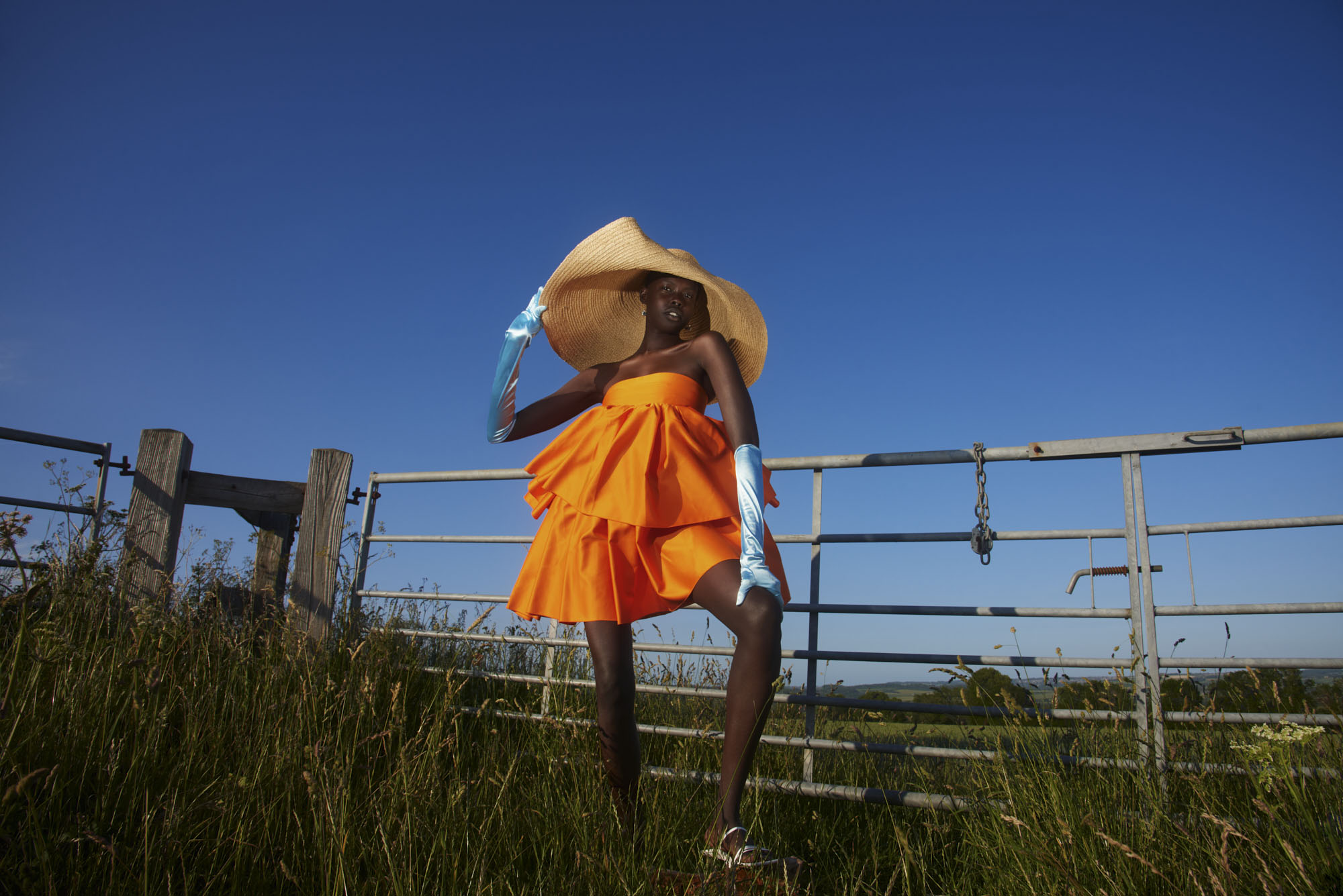
Fashion /

Rental platform Rotaro is on a mission to use fashion rental as a vehicle for wider industry reform. Founded in November 2019 by former WGSN trend analyst Georgie Hyatt and her partner Charlie Knowles, Rotaro’s ambitions go beyond just dressing young women in of-the-moment brands. “What we’re trying to do is re-engineer the whole fashion industry – it’s a very big task,” explains Hyatt over Zoom. “We’re trying to change the way people are getting dressed, to encourage people to buy less but buy better, and whenever they need something new, to come to rental.”
By offering pieces from much-hyped emerging, independent (but most importantly, conscious) brands like Cecilie Bahnsen, Cult Gaia, Jacquemus, House of Sunny and Stine Goya, Rotaro is taking an aesthetics-led approach to encouraging more sustainable consumption of fashion. “We found that in terms of marketing, sustainability as an educational piece isn’t enough, it can’t be your whole offering,” she says. “You need to have a lot of other reasons why people are going to come to you, and we found that accessibility to great brands at a lower price, as well as [encouraging] exploration of personal style, are big reasons.”

The trifecta of Rotaro’s price point, cult brand selection and an ethical ethos results in a customer base largely made up by Gen Z, who are keen to experiment with their style, but probably don’t have the budget to buy a £400 dress. “People really understand that what we’re offering is a platform to discover new brands or new styles and to push the envelope on your own style,” says Hyatt. “I think our Gen Z customers really enjoy that you can rent a metallic pink dress, even if they never want to own it or wear it more than once. Renting allows them to inject newness into their wardrobe.” Indeed, part of the platform’s success with Gen Z customers comes down to a shifting definition of “new” among a younger generation. “What’s great about them is that ‘new’ to them doesn’t mean it’s new out the box,” she says. “New to them just means it’s new in their lives.”
Beyond ensuring their partner brands are up to scratch, Rotaro is also embedding sustainable practices across its own operations. “A criticism of fashion rental is that it leaves a large carbon footprint,” says Hyatt. “So we want to make sure we eliminate as much of this footprint as possible. We’re working with a carbon neutral delivery service, and we use biodegradable and recycled packaging.” Hyatt says the Rotaro team are currently developing reusable bags to cut out single-use packaging altogether.
These earth-conscious decisions are important for a few reasons – not only to reduce Rotaro’s environmental impact, but to incentivise their customers through tangible rewards. “We’ve partnered with Ecologi to plant a tree for every single rental,” says Hyatt. “We want to have that positive reinforcement – every time someone rents something, they’re reminded that they’re doing something positive for the environment.”
So far, so good. But how exactly is Rotaro tackling the wider issues facing fashion? Here’s where things get really interesting. “We’re currently developing technology that will enable us to work directly with brands to help them make better product decisions.” To do this, Rotaro is tapping into their data to guide brands in the design phase. “We’re giving them qualitative and quantitative feedback as to who is renting their garments, why they’re renting them, the demographics, how the products have fared in the market, and then going one step further to make sustainable product recommendations,” says Hyatt. “The way I see us in the future is as a key facilitator to help brands develop better products and also to break down the barrier between brands and their circular economy customers.”

Launching a business is difficult, but launching one four months before a pandemic is something else. For two months of 2020, Rotaro used their logistics facility to send fruit and vegetable boxes to people in need. “We didn’t want to promote fashion rental because we thought it was insensitive,” says Hyatt. “There was an oversupply of vegetables from farmers that supplied closed restaurants, and there were people who couldn’t get online delivery slots, so we connected the two for a few months. It had nothing to do with fashion rental, but it felt very much part of our ethos.”
Rotaro pivoted back to fashion in the summer, and rental rates mimicked the peaks and troughs of various lockdowns throughout the year. “Every time we’ve seen an easing of lockdown there has been a surge in rentals. We had a really excellent festive period, even though we were in lockdown,” says Hyatt. “I think people were just making the most of small occasions, which I think was really cool. That’s very much what we’re about as a brand – celebrating life and bringing joy to people’s lives in a mindful way.”

In the long-run, Hyatt thinks the pandemic has actually accelerated the success of fashion rental platforms. “There was a lot of information [about consumption and greenwashing] being shared in our wider communities, and people have had the opportunity to reconsider their relationship with fashion,” she says. “They’ve had a wardrobe reset and I really think that people will be more mindful with their purchases going forward.”
However you’re choosing to ring in the aforementioned Roaring Twenties, Hyatt is keen for rental platforms like hers to be top of mind for people who plan on dressing to the nines at the earliest opportunity. “Fashion is such a form of self-expression and we’ve all been locked up wearing sweatpants for too long,” says Hyatt. “People are celebrating life through fashion, which is fantastic, and Rotaro will be there to help them make better decisions as they’re re-emerging into the new normal.”